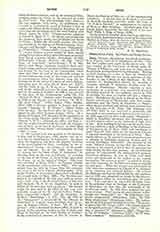

Soto, DOMINIC, Dominican, renowned theologian, b. at Segovia, 1494; d. at Salamanca, November 15, 1560. His first studies were made in his native city. He next studied at the University of Alcala under St. Thomas of Villanova, and later went to Paris, where he obtained his baccalaureate in philosophy. Having studied theology for a time at Paris, he returned to Alcala, about 1520, and was made professor of philosophy in the College of San Ildelfonso. In this capacity he distinguished himself by securing a complete triumph of moderate Realism over the errors of Nominalism. Already enjoying a wide reputation as a professor, and apparently destined for higher honors, he was suddenly moved in 1524 to abandon his chair as teacher and join a religious order. Straightway he made a retreat at the Benedictine monastery of Montserrat, and then sought admission into the Order of Preachers at Burgos, where he was received and entered upon his novitiate in the Convent of St. Paul. The following year (July 23, 1525) he was admitted to profession, and was made at once professor of dialectics in his convent. In 1529 appeared his first work called “Summulae”, which in simplicity, precision, and clearness was a decided improvement on the manuals of logic then in use. After teaching in his convent for seven years, he was called to a chair of theology in the University of Salamanca on November 27, 1532, and continued to teach there till 1545, when he was chosen by Charles V imperial theologian at the Council of Trent. During his labors at the council he rendered great service in helping to formulate dogmatic decrees and in solving theological difficulties. The general of his order, Albertus Casaus, having died just before the opening of the council, it fell to Soto to represent his order during the first four sessions. In the following sessions he represented the newly-elected general, Franciscus Romaeus. It was at Trent that Soto wrote and dedicated to the fathers of the council his treatise “De natura et gratia”, in which he clearly and ably expounds the Thomistic teaching on original sin and grace. When the council was interrupted in 1547, Soto was summoned by Charles V to Germany as his confessor and spiritual director. He refused the Bishopric of Segovia offered him by the emperor, and in 1550 was permitted to return to his convent at Salamanca, where he was elected prior the same year. Two years later he succeeded Melchior Cano in the principal chair of theology at the University of Salamanca, at that time the metropolis of the intellectual world. In 1556 Soto resigned his professorial chair. Chief among his philosophical works, besides the “Summulae”, are: “In dialecticam Aristotelis commentarii” (Salamanca, 1544); “In VIII libros physicorum” (Salamanca, 1545). The following are his best-known theological works: “De natura et gratia libri III (Venice, 1547); “De ratione tegendi et detegendi secretum” (Salamanca, 1541); “De justitia et jure libri X” (Salamanca, 1556); “Comment. in Ep. ad Romanos” (Antwerp, 1550); “In IV sent. libros comment.” (Salamanca, 1555-56).
CHARLES J. CALLAN

